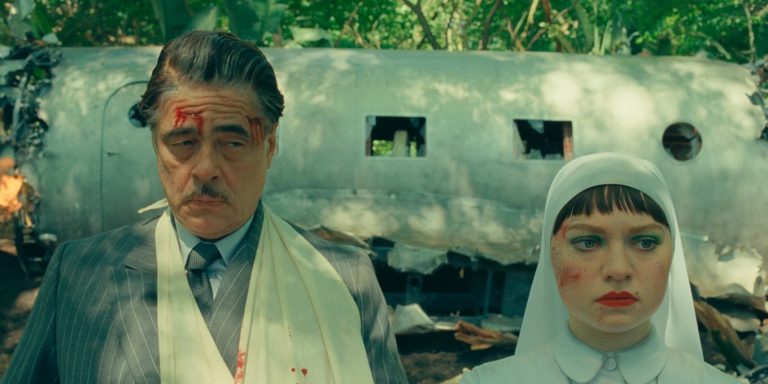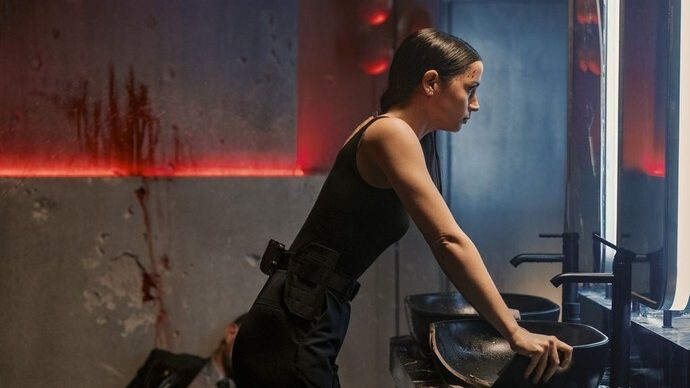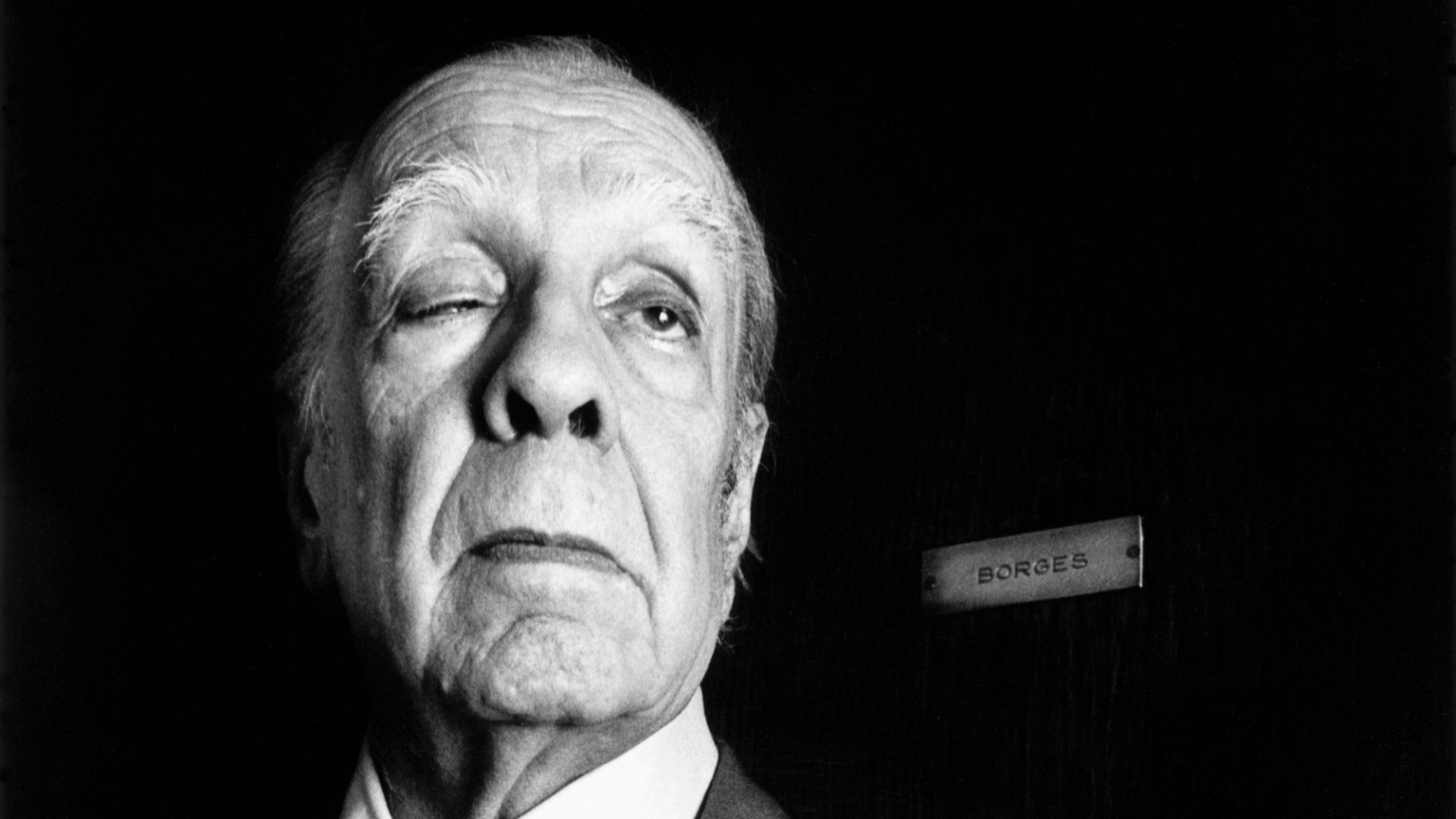Step aside Ripley, Beatrix Kiddo, Sarah Connor and Nikita: there’s a new kick-ass heroine in town, and her name is Eve Macarro. If you have seen Ana de Armas in the final Daniel Craig Bond movie No Time to Die (2021), it will come as no surprise that she is more than capable of carrying an entire action movie – and a spin-off of the billion-dollar John Wick franchise, no less.
Set between the third and fourth chapters of the saga, Ballerina (directed by Len Wiseman rather than the supremo of the series, Chad Stahelski, who stays on as producer) follows the young Eve (Victoria Comte) as she is orphaned, rescued by Winston Scott (Ian McShane) and enrolled in the Ruska Roma: a ballet school that doubles up as a crime syndicate, ruled with steely camp by the Director (Anjelica Huston).
Trained both as dancer and assassin, the adult Eve – now played by de Armas – seeks revenge and presents herself at the neutral-ground Continental Hotel to concierge Charon (the late Lance Reddick in his final role) and to Scott, its legendary manager. Next stop is the Prague branch of the Continental chain, where she encounters Daniel (The Walking Dead’s Norman Reedus) who is protecting his young daughter from the same brutal cult that, it transpires, murdered Eve’s parents.
Led by the Chancellor (Gabriel Byrne, hamming it up like a Hammer House of Horror villain), this murderous tribe has a centuries-old non-aggression pact with Ruska Roma – which Eve is given strict instructions not to break. Just to be on the safe side, the Director dispatches Wick (Keanu Reeves) to see that her wayward protégée does not cause mayhem at the cult’s snowbound Austrian hideaway. Well: how do you think that plan works out?
As the superhero mega-franchises have collapsed under their own weight, the Wick movies have shown how successful a more focused approach to world-building can be. In addition to the four principal chapters, there has been an entertaining series on Scott’s rise to power, The Continental (Prime Video). An animated prequel movie is on its way, as – not surprisingly – is John Wick 5. But Wick-world has yet to suffer from the creative flabbiness that afflicts so many of its counterparts.
I am pretty sure that de Armas will win an Oscar one day: check out her superb performance as Marilyn Monroe in Andrew Dominik’s underrated Blonde (2022). But – like Charlize Theron, who did win an Oscar for Monster (2003) – she sees no incompatibility between serious character acting and weapons-grade action roles.
Ballerina is essentially a two-hour-long gun-fu, shoot ‘em up chase sequence, requiring full commitment from its lead performer: as if in recognition of this, there is a deft nod to the famous scene in Steamboat Bill, Jr (1928), in which a housefront falls on Buster Keaton.
Many film critics have a wretched blind spot when it comes to the artistry of stunt coordination – a category of cinematic achievement that is, at last, to be honoured in the 100th Academy Awards of 2028. The truth is, and has always been: you have to be seriously smart to make movies this entertaining.
STREAMING
Tires (Netflix)
Inevitably, this stripped-back sitcom, set in a Pennsylvania auto shop, has been seen as a straightforward vehicle for Shane Gillis, now a global comic superstar. In fact, the idea for the show long predated his rise to fame as a stadium-filling standup and the world’s best impersonator of Donald Trump.
Now in its second season, Tires is the very funny yield of his longstanding collaboration with director John McGeever (with whom he made the online sketch series Gilly & Keeves) and Steve Gerben (a regular guest on Gillis’s podcast with fellow comic Matt McCusker) who plays Will, the neurotic manager of Valley Forge Auto. Chris O’Connor, another close friend of Gillis, is Cal, a distracted mechanic who works alongside Shane.
Andrew Schulz, now a stand-up star in his own right, who hosted Trump on his Flagrant podcast last March, pops up as Andy, a local car dealer. Kilah Fox, who plays the receptionist Kilah, is an alumna of Gilly & Keeves, and a familiar figure on the stand-up circuit. Stavros Halkias, who plays the priapic general manager Dave (“I even cheat here – that’s how much I care about this company”!), is a podcaster and comedian, whose Netflix special Fat Rascal premiered in 2023.
Suggested Reading


The Phoenician Scheme, a gem of a film
The show works, in other words, because it sprang from a milieu of friends and colleagues, and draws heavily upon the cast’s blue-collar past. In this season – all 12 episodes now streaming – Will has great plans to expand his Dad’s auto franchise with a hefty bank loan; Shane finds love (sort of) with caterer Kelly (Veronika Slowikowska); and his businessman father Phil (Thomas Haden Church) turns up to put – so to speak – a spanner in the works.
What entitles Tires to comparison with, say, the British version of The Office (2001-03) or Kevin Smith’s Clerks (1994) is that its real subject is the way in which most people get through the day in regular jobs: people who don’t talk relentlessly about remote working, Zoom calls or the perils of AI, but clock in day in, day out at the same place.
So when Shane gets a bonus, he immediately buys a gun. “That’s trigger discipline,” he tells Cal. “You don’t know about that because you’re a liberal.” When Will loses a basketball game, and is forced to wear a wig all day, he convinces himself that he looks like Dave Grohl. The appearance of black mould on the decrepit garage walls makes the staff hypochondriacal (“I think I’m having a heart attack, dude”). And how can one not love a creative universe in which the dramatic highlight is the “Tri-State Mid-Market Tire Expo”? Roll on season three.
STREAMING
Storyville: The Jackal Speaks (iPlayer)
The long and murderous career of Ilich Ramírez Sánchez – aka “Carlos the Jackal” – has been rewarded with an entirely undeserved mythology. In 1975, a Guardian journalist reported that a copy of Frederick Forsyth’s The Day of the Jackal had been found at a London flat where he had been staying – and thus he acquired a nickname that stuck (“Carlos” being lazily added because of his Latin American heritage).
In Robert Ludlum’s Jason Bourne trilogy, he is one of the CIA’s super-agent’s great antagonists; and the notorious mugshot of “Carlos” wearing wraparound shades, gaudily coloured in the style of a Warhol screen print, was used as the cover of Black Grape’s It’s Great When You’re Straight… Yeah (1995).
Directed by Yaron Niski and Danny Liber, this feature-length documentary is a welcome corrective, principally because it is structured around a 2021 interview by Niski with Sánchez. The man who emerges from these conversations is a pure narcissist; a psychotic chameleon who travelled the world in search of violence; a worshipper of death whose only regret is that “I should have killed a few more people.”
Raised in an affluence in Caracas, he saw no contradiction between his supposed Marxist ideology and the luxury of a home life with staff: “A communist is not a dog, he’s a human being”. Indeed, he frames his own criminality as somehow aristocratic: “Something in my family is special, I don’t know why”.
After his induction as a teenager into the Venezuelan Communist League, he spent part of his youth in London and then travelled to Moscow to study at the international university. But in Beirut in 1969 he sought and was granted membership of the Popular Front for the Liberation of Palestine (PFLP). At his training camp, he boasts, “I was the best shot – I shot better than anyone else”.
Back in London in 1973, he gunned down (but did not kill) J. Edward Sieff, chairman of Marks & Spencer and an honorary vice-president of the British Zionist Federation; he was involved in the 1975 attacks on El Al planes at Orly Airport near Paris; later that year, he led an assault on the OPEC (Organization of the Petroleum Exporting Countries) headquarters in Vienna, taking 60 hostages and killing three.
Further bogus glamour was added to his exploits by marriage to Magdalena Kopp, the famed German terrorist who was involved in the Entebbe hostage crisis in 1976, whom he met at another training camp in Aden. A serial philanderer like his father, Sánchez was also a deranged misogynist, creepily obsessed by women’s “cleanliness”.
The bombing of the Radio Free Europe offices in Munich put him squarely in the crosshairs of the CIA and raised the stakes accordingly. Sheltering in Khartoum, he geolocated himself with a call intercepted by Israelis, who passed the details to the US.
Finally captured in 1994, he was sentenced to multiple life sentences. Supposedly a convert to Islam, he is now 75, incarcerated in Poissy Central Prison in the western suburbs of Paris, still telling lies about his blood-drenched past as a psychopath posturing as a pimpernel.
BOOK
The Golden Hour: A Story of Family and Power in Hollywood, by Matthew Specktor (Ecco)
In homage to Joyce’s Finnegans Wake – the book his mother was reading when she died in 2008 – Matthew Specktor’s terrific memoir begins halfway through the sentence with which it ends incompletely.
It is 1979, a Hollywood party is in full swing and the 12-year-old Matthew is approached by a man “who seems an avatar from another world… He is clumsy, oddly ill-at-ease, with a golly-gee demeanor that feels beamed in from another decade”.
The stranger congratulates him for “being born lucky” – by which he means, being the son of big-deal agent, Fred Specktor. This curious figure, it turns out, is David Lynch, who, Fred explains, has “directed an interesting little movie called Eraserhead”.
What makes The Golden Hour so enjoyable is its interweaving of family recollections with cinematic history. Now aged 92, Specktor Sr is still going strong in the business, having represented stars such as Robert DeNiro, Robert Duvall, Glenn Close Jeremy Irons, Barbra Streisand, and Helen Mirren.
Lynch was right in his prophecy, to the extent that Specktor Jr was almost bound to end up being a screenwriter – like his mother, Katherine – as well as a novelist and cultural journalist. But “born lucky” scarcely captures an upbringing in which he was also introduced to Quaaludes at the age of ten, and cocaine soon after.
When he is 13 and hears his parents arguing, he simply pulls out the bong from under his bed. “My mother is a wonderful parent,” Specktor writes, “adept at every part of it except actual parenting.”
The book is written like an episodic novel, a form that suits the often dark fantasy life of its setting. Like his parents, Specktor is madly in love with the movies and believes – often against the evidence – that great, inspiring creativity can emerge from the stew of vanity, avarice and vindictiveness. Film, he writes, is the “great repository of the American self-image”; in this sense, The Golden Hour is an elegy for a time when movies were part of a shared public space, a unifying culture.
Hollywood moguls such as Lew Wasserman and Michael Ovitz are the giants that stalk its pages, and there are many cameos: James Baldwin teaching the author that “writing is not some glamour profession, a gin and tonic and a cigarette as you slouch over your typewriter, bitching about the studio’s notes”; Bruce Dern mooning; and Marlon Brando leaving a phone message about “peckin’ at tranquilizers like a goose at corn.”
As he looks ahead, Specktor oscillates between despair and residual faith. “Do Alvin and the Chipmunks and Aliens vs. Predator: Requiem whisper to people in their dreams?” he asks rhetorically, but then adds: “Only people, and civilizations, are mortal. Films, novels, paintings, and poems. These things will never defeat capitalism, but they will surely outlast it, and all around the world there are those for whom these forms are new.”
In the end, of course, it can all turn on a dime. One of the consequences of the 2008 writers’ strike – “a revolution that is also catered” – is that, with most production stalled, “NBC has just shifted its reality show, The Celebrity Apprentice – one they were an eyelash from cancelling – into a primetime slot to fill the void”. Its presenter, arbitrarily elevated to a new level of televisual fame, now occupies the Oval Office.




